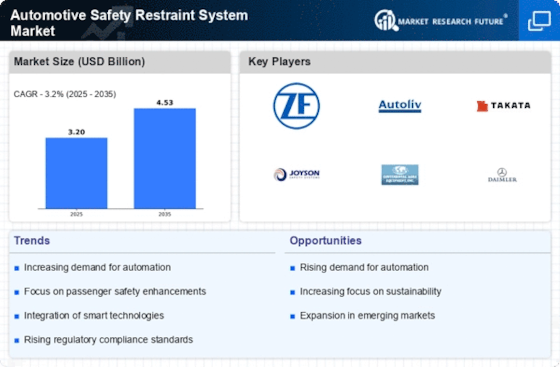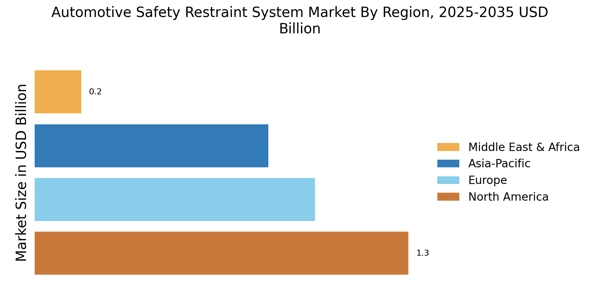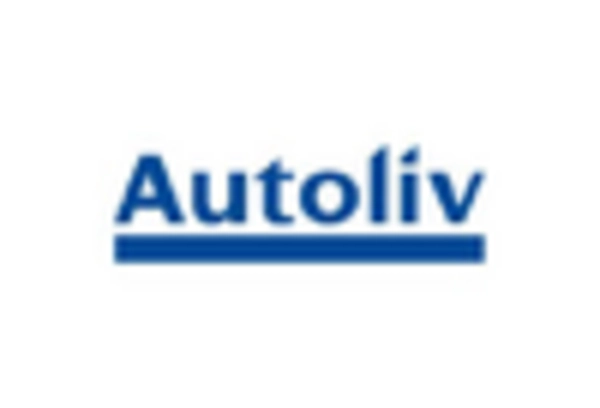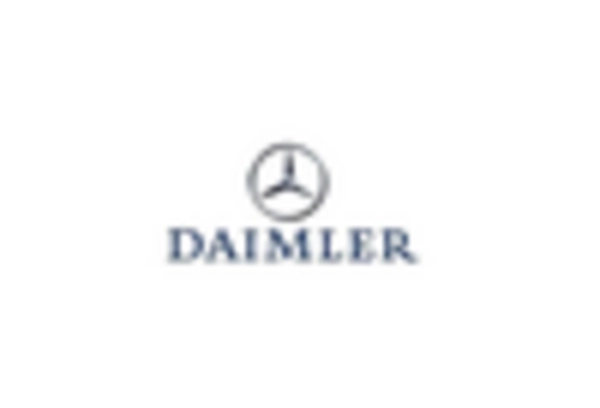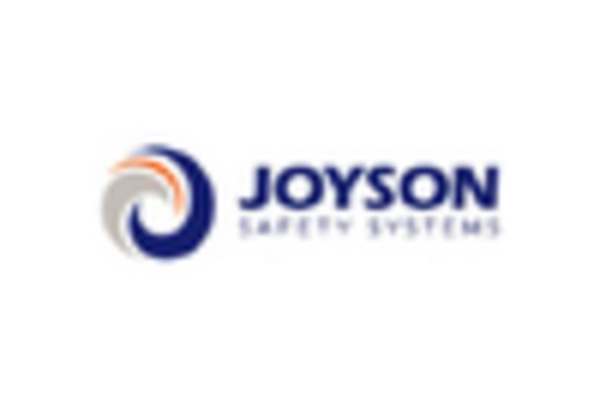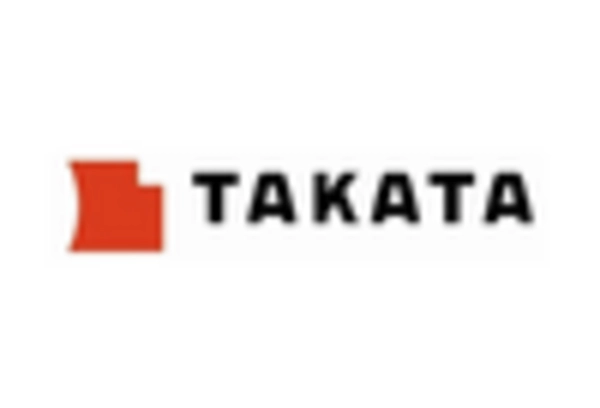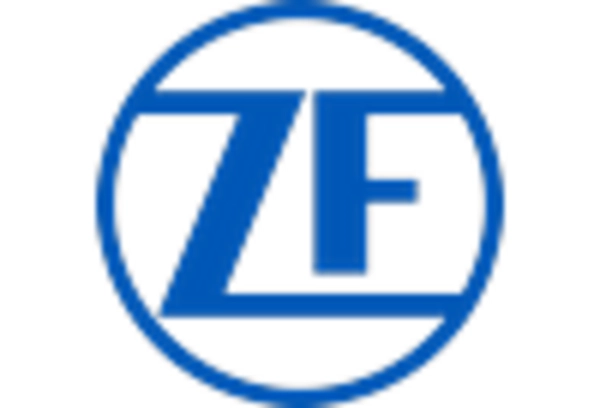Rising Consumer Awareness
Consumer awareness regarding vehicle safety is on the rise, significantly impacting the Automotive Safety Restraint System Market. As individuals become more informed about the importance of safety features, they increasingly prioritize vehicles equipped with advanced restraint systems. Surveys indicate that over 70% of consumers consider safety ratings as a critical factor when purchasing a vehicle. This heightened awareness drives automakers to incorporate state-of-the-art safety technologies, such as airbags and seatbelt systems, into their designs. As a result, the Automotive Safety Restraint System Market is poised for growth, as manufacturers respond to consumer demands for enhanced safety features, thereby fostering a competitive landscape focused on innovation and quality.
Technological Advancements
Technological advancements play a crucial role in shaping the Automotive Safety Restraint System Market. Innovations such as adaptive airbags, pre-tensioning seatbelts, and smart restraint systems are becoming increasingly prevalent. These technologies not only improve the effectiveness of safety systems but also enhance the overall driving experience. In 2025, the market for smart safety systems is expected to grow at a compound annual growth rate of 8%, reflecting the industry's commitment to integrating cutting-edge technology into vehicle safety. As automakers invest in research and development, the Automotive Safety Restraint System Market is likely to witness a surge in demand for these advanced systems, which are designed to provide optimal protection in various driving scenarios.
Stringent Safety Regulations
The Automotive Safety Restraint System Market is significantly influenced by stringent safety regulations imposed by governments and regulatory bodies. These regulations mandate the inclusion of advanced safety features in vehicles, compelling manufacturers to enhance their safety restraint systems. For instance, regulations in various regions require vehicles to meet specific crash test standards, which necessitates the incorporation of high-quality restraint systems. As a result, the market is expected to grow as manufacturers strive to comply with these regulations while also aiming to improve their safety ratings. The ongoing evolution of safety standards indicates that the Automotive Safety Restraint System Market will continue to expand as compliance becomes increasingly critical for market participants.
Increasing Vehicle Production
The Automotive Safety Restraint System Market is experiencing growth due to the rising production of vehicles worldwide. As manufacturers ramp up production to meet consumer demand, the need for advanced safety features, including restraint systems, becomes paramount. In 2025, the production of passenger cars is projected to reach approximately 80 million units, which indicates a significant increase from previous years. This surge in vehicle production directly correlates with the demand for safety restraint systems, as automakers strive to enhance vehicle safety ratings and comply with stringent regulations. Consequently, the Automotive Safety Restraint System Market is likely to benefit from this upward trend, as manufacturers invest in innovative technologies to improve occupant protection and reduce fatalities in accidents.
Growing Demand for Electric Vehicles
The growing demand for electric vehicles (EVs) is emerging as a significant driver for the Automotive Safety Restraint System Market. As the automotive landscape shifts towards electrification, manufacturers are focusing on integrating advanced safety features into EVs to ensure occupant protection. The Automotive Safety Restraint System Market is projected to reach 30 million units by 2030, which presents a substantial opportunity for the safety restraint systems sector. This transition necessitates the development of specialized restraint systems that cater to the unique design and performance characteristics of electric vehicles. Consequently, the Automotive Safety Restraint System Market is likely to experience growth as manufacturers adapt their safety technologies to meet the evolving needs of the electric vehicle market.


